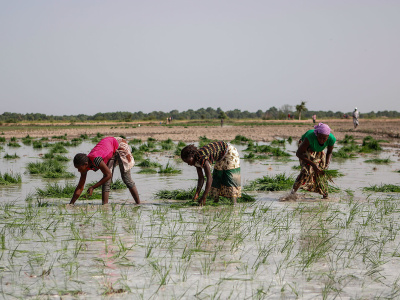
The implications of the Lisbon Treaty for the ACP Group: ECDPM Summary Report of the Workshop for the ACP Ambassadors
In October 2009, ECDPM facilitated a first meeting for the Ambassadors of the African, Caribbean and Pacific Group of States (ACP) on the implications of the Lisbon Treaty for the ACP Group. It was agreed to have a follow-up workshop after the adoption of the Lisbon Treaty when the EU would have taken major decisions and when the implications for the ACP would have become clearer. Although final decisions are still outstanding, major progress has been realised in recent weeks in establishing the European External Action Service (EEAS) and in restructuring the European Commission Services in response to the EEAS. Against this background a second workshop was organised, aiming to 1) provide an overview of the most recent changes and proposals in the EU external relations post Lisbon 2) assess the possible implications of the new EU external relations and development architecture for the ACP and 3) discuss elements of an ACP response strategy to the likely changes in the ACP-EU Partnership.
Overall, ACP representatives remain concerned about their role and the role of development in general in the new proposed set-up, given the EEAS’ focus on CFSP and its involvement in the programming cycle of the EU’s development assistance, the EU’s recent regionalisation of its relations with different blocs within the ACP as well as a possible budgetisation of the European Development Fund (EDF). They realise that there is still uncertainly over the exact impact of the Lisbon Treaty and that it is thus important to engage with the EEAS and the European Parliament (EP) to ensure that the Group’s interests are heard. With regard to the joint interests of the Group, they recognise that a reflection on its joint cause post-2020 is necessary. The workshop was jointly organised by the ACP Secretariat and the European Centre for Development Policy Management (ECDPM) at the ACP House in Brussels. It was held under Chatham house rules.
Statements were delivered by Dr Mohammed Ibn Chambas, Secretary-General of the ACP Secretariat, Ambassador René Makongo, Chairperson of the ACP Committee of Ambassadors, Mr. Lingston Cumberbatch, Former Chair of the ACP Committee of Ambassadors and Chair of the Board of ECDPM, Mr. Guillaume McLaughlin, Advisor of Member of the European Parliament Guy Verhofstadt, and Mr Domenico Rosa, Head of Unit, DG Development. Dr. Ibn Chambas and Geert Laporte, Head of Institutional Relations and Partnerships, ECDPM, chaired the meeting. Dr. James Mackie, Programme Coordinator, ECDPM, and Ms. Jeske van Seters, Programme Officer, ECDPM, provided technical background presentations for the discussion.




